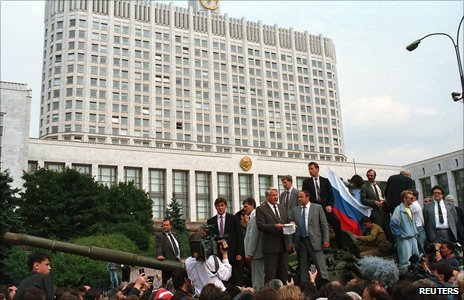TOPEKA, Kan. (AP) -- When a high school senior tweeted that Kansas Gov. Sam Brownback "sucked," among other invectives, reaction at the state Capitol led her principal to demand an apology. Instead, it was the Republican governor offering a mea culpa Monday, forced to admit to a self-described overreaction by his staff that subjected him to ridicule for efforts to police a teenager's Internet musings.
Emma Sullivan's tweet from the back of a crowd listening to Brownback speak last week, and her subsequent refusal to write an apology letter, spurred several thousand supporters to rush to her online defense - boosting her Twitter following from 61 friends to more than 12,000 people in less than a week.
The 18-year-old from the Kansas City suburb of Fairway was taking part in a Youth in Government program in Topeka when she tweeted from her cell phone: "Just made mean comments at gov. brownback and told him he sucked, in person (hash)heblowsalot."
She said she was just joking with friends, but Brownback's office, which monitors social media for postings containing the governor's name, contacted the youth program. Sullivan said she was called to the principal's office for the first time ever and told to apologize in writing to the governor.
"My staff overreacted to this tweet, and for that I apologize," Brownback said in a statement Monday. "Freedom of speech is among our most treasured freedoms."
The reaction exemplifies what Bradley Shear, a Washington, D.C.-area social media attorney, called an example of the nationwide chasm between government officials and rapidly evolving technology.
"This reflects poorly on the governor's office," Shear said. "It demonstrates their P.R. department and whoever is dealing with these issues need to get a better understanding of social media in the social media age. The biggest problem is government disconnect and a lack of understanding of how people use the technology."
Brownback's office declined to discuss its social media monitoring in detail, but politicians and governmental offices across the county are increasingly keeping an eye on the Internet for mentions of their campaigns or policies, not unlike the way newspapers and television broadcasts have been watched for decades. Many officials even maintain their own Facebook and Twitter accounts to inform constituents of events or policy announcements.
Shear said the disconnect comes in determining how, or if, to respond in a new age of interactivity.
"Whatever issues are out there, we're just starting the conversation about them," Shear said. "There needs to be a national conversation on how to respond to these issues and how to do it right."
Missouri Gov. Jay Nixon's office, for example, doesn't formally monitor comments about the governor posted through social media sites, nor has the office reached out to anybody because of comments they posted, spokesman Scott Holste said.
"Our focus and concerns are really on bigger things," Holste said. "It's an occasional glance, but it's not something that is systematic."
Sullivan's tweet Nov. 21 caught the eye of Brownback's deputy communications officer, who forwarded it to two staffers in the governor's office, according to a string of emails obtained by The Associated Press.
Niomi Burget, assistant director of scheduling, forwarded the tweet to Deborah Brown with the Shawnee Mission School District, who is state coordinator for the Youth in Government program, and said she didn't know if the student was in Brown's group, but thought if she was Brown might want to know about the tweet.
Brown responded that she had contacted Sullivan's principal, was embarrassed for the program, and hoped Brownback would speak to students again next year.
As Sullivan's tweet and her school's call for an apology letter gained traction online, Shawnee Mission East Principal Karl Krawitz emailed Burget to say that the teen never was threatened with punishment if she refused to write the letter. Krawitz, who said he had received "disgusting" hate mail over the incident, acknowledged he wasn't a Brownback supporter but was troubled that a student had been disrespectful while on a school trip.
"I am not a big fan of the governor, but I respect the person and the office," he wrote in the email Saturday, adding that he thought the incident "will probably get ugly."
The Shawnee Mission School District said Monday it was no long seeking a letter from Sullivan.
"Whether and to whom any apologies are issued will be left to the individuals involved," the statement said. "The issue has resulted in many teachable moments concerning the use of social media. The district does not intend to take any further action on this matter."
Doug Bonney, legal director for the American Civil Liberties Union of Kansas and Western Missouri, said the teen's speech was clearly protected by the First Amendment.
"Saying that the governor is no good and is a blowhard is core protected speech," Bonney said. "It's absolutely what the First Amendment was designed to protect."
Sullivan said Monday that nobody from the school told her about the statement it issued saying she didn't have to write the apology letter, nor did she hear from the Brownback's office about its apology. She instead heard about both from news media seeking comment.
"They were just kind of out there for the world, but no one reached me directly," she said.
----
Milburn reported from Topeka. Draper reported from Kansas City, Mo. Associated Press writer Heather Hollingsworth in Kansas City, Mo., contributed to this report.


